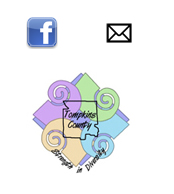How the Petition Process Works
by John Mariani (Excerpt from an article published in the Syracuse Post-Standard June 10, 2007. Used with permission). They stalk the street, clipboards in hand. They rap on your door or ring your doorbell. They want your signature. "They" are the legions of campaign volunteers and political party foot soldiers who, starting Tuesday, will fan out across Central New York, asking fellow party members to sign designating petitions to get their candidates on the ballot. If you're a registered Democratic, Republican, Conservative, Independence or Working Families party member, odds are good you'll be visited by at least one petition-toting neighbor over the next five weeks. Here are 10 things that a good citizen needs to know about the petition process, developed with the help of Helen Kiggins, Onondaga County's Republican election commissioner: The person at your door may ask you to sign a sheaf of petitions. Typically, this will be a party committee member who, according to their party's rules, must gather a certain number of signatures for the party's designated candidates - those who won the committee's endorsement. You can sign them all if you want to, but you don't have to. You also may see people circulating petitions for candidates who did not win their party's designation and want to force primaries against the candidates who did. Signing a petition does not pledge you to vote for that candidate. It just indicates that you think they should be on the ballot. You can vote for another candidate in the primary and general elections. All you need to do is sign your name. The petition passer will fill in your address and the date. You must be a member of the same party as the petition you're signing. That is, only a registered Democrat can sign a Democratic petition, only a registered Republican can sign a Republican petition, and so on. "Registered member" means that when you registered to vote, you indicated on the form that you wanted to be identified with a particular party. It doesn't count if you did not register with a party but "always vote Republican" or "usually vote for the Democrat." By the same token, if you're a registered party member you can still sign that party's petitions even if you are a habitual ticket-splitter. The petition passers almost always are armed with voter registration lists that identify who in the area belongs to which party. One other thing: Unless you're a new voter, you must have registered with that party before last November's election. Otherwise it's too late to enroll in a party for this year's petition drives or primaries. The only other exception is if you are already enrolled in a party, move and stick with that party when you re-register to change your address. You can only sign for yourself. It doesn't matter that you're certain Aunt Millie would sign the petition if only she was home. If you sign for her, the signature could get thrown out if another candidate raises an objection. You could even be prosecuted; it's against the law to sign for someone else. You must be registered to vote at the same address you are signing from. If you recently moved but haven't changed your registration and you sign a petition, your signature may not count. If two candidates from your party are seeking your signature to run for the same office, you can sign both petitions, but only the one you signed first will count. If you signed both on the same day, neither will count. You must sign in pen. State law says so. The designating petition season this year is June 12 to July 19. Signatures collected before June 12 aren't supposed to count, and the Board of Elections won't accept petitions submitted in person after 5 p.m. on July 19. It will accept petitions received by mail after that date, but only if they are postmarked by the 19th. Despite the deadlines mentioned above, you'll see petition passers around town at other points during the summer. Independent candidates - those who want to run for office for one of the parties that aren't officially recognized in New York or those who want to run under their own label - will pass their petitions from July 10 to Aug. 21. Any registered voter can sign those petitions if they haven't signed other petitions for the same office. (Unrecognized parties, by the way, include the Greens, Liberals, Socialist Workers, Libertarians and others whose candidates for governor did not receive 50,000 votes on their ballot line in the 2006 election. Five parties garnered at least 50,000 votes and are recognized - the Democratic Party, Republican Party, Conservative Party, Independence Party and the Working Families Party.) One final point that isn't covered by election law: Be nice to the petition passers. You don't have to sign their petitions, but if it's hot, you may want to offer them a drink of water, or a bit of shelter if a cloudburst drenches the neighborhood. These, after all, are some of the people who make democracy work. |
